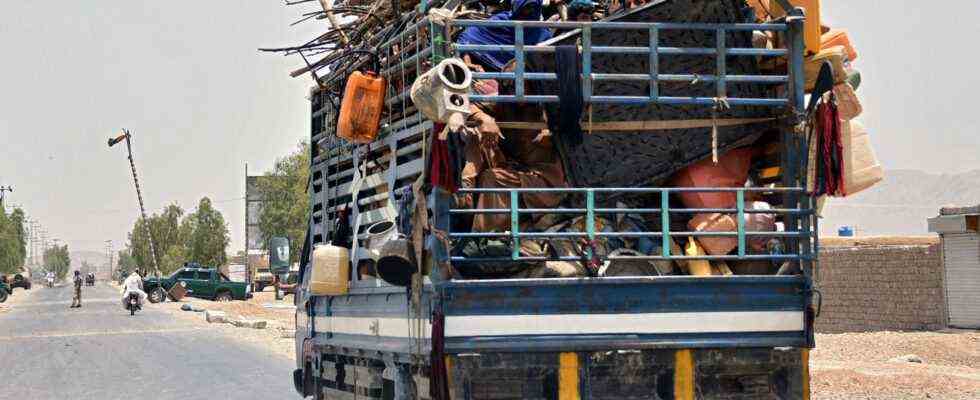Status: 07/06/2021 9:03 a.m.
Since the international troops began to withdraw, the radical Islamic Taliban have been advancing in Afghanistan. Civilians are suffering – what can the UN do?
From Antje Passenheim,
ARD Studio New York
There is only one acceptable direction for Afghanistan, warns the UN special envoy Deborah Lyons: “Away from the battlefield. Towards the negotiating table.”
Speaking to the Security Council, the head of the UN mission UNAMA said that the United Nations must do everything in its power to bring the parties to the conflict to this table. They should not leave the suffering civilian population helpless to the radical Islamic Taliban:
More than 50 of the 370 districts have fallen into the hands of the Taliban since May. Most of these areas encircle provincial capitals. It looks like the Taliban are positioning themselves to take these capitals after international troops have withdrawn.“
The UN could do more
But the criticism of many: the UN could do more to prevent this. And to promote peace, says the international relations expert, Charli Carpenter, of the University of Massachusetts: “The role of the UN in Afghanistan has so far been limited. The forces there were organized by NATO and the international coalition, but with the blessing of the United Nations. ”
The Security Council approved the military operation following the September 11, 2001 attacks. Since then, the UN has been active in the Hindu Kush with organizations such as UNICEF and others. The mainstay is UNAMA – a small political UN mission with around 1200 employees, most of whom are Afghans. They coordinate, monitor and document.
There are no peacekeepers
But what is missing are peacekeepers, says Carpenter: “In order to bring in a blue helmet mission, the Taliban would have to be accepted as a legitimate actor in this conflict. Peace would have to be negotiated with the Taliban – which no one wanted for a long time. And now that they are to negotiate, we need countries in the Security Council – including the USA – that agree to such an operation. ”
This was not an option for the US – as long as they wanted to be in charge of Afghanistan. But after the withdrawal of the US troops, a new advance would be possible. Both parties to the conflict would have to agree to a blue helmet deployment – not only the government in Kabul: “So far, the Taliban has not given its approval, but they have indicated that they might agree to a blue helmet mission if they come from Muslim countries”, says Carpenter.
Security Council split
That would have to be countries from another region: for example from Egypt, Bangladesh or Indonesia. Armed humanitarian intervention to protect the civilian population would also be possible. But that would also need the approval of the Security Council. Carpenter says: “The Security Council is divided when it comes to intervening on humanitarian grounds. Russia and China in particular would veto such measures.”
And thirdly, the resources would have to be found. They are already missing for the current projects. This year the UN needs $ 1.3 billion to help nearly 16 million people in need. So far they have 13 percent of the sum in their cash register.
After the withdrawal: where are UN blue helmets for Afghanistan?
Antje Passenheim, ARD New York, 6 July 2021 7:39 am

